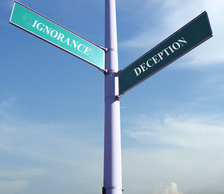 When I read Carrier’s article for yesterday’s review, I really could not tell if his errors were the result of ignorance or intent. For this article, however, I have to assume that he is intentionally twisting the facts, for the level of ignorance required for the first option is simply unthinkable in a man with a PhD in the field of history. Let me show you what I mean. Carrier’s “best proof” that the founders did not rely on the Bible in formulating our system of government comes from a paragraph in the preface to John Adams’ Defence of the Constitutions of Government of the United States of America. Carrier quoted Adams as saying that:
10 Comments
 Yesterday, as I sat at home enjoying a day off because of the snow, a friend of mine sent me a link to an article by Richard Carrier entitled “Christianity Was Not Responsible for American Democracy.” This article was intended to be included in the 2010 book The Christian Delusion edited by John Loftus, but was instead published on the book’s accompanying website. Carrier’s claims sparked a lot of interest among atheists, and he was asked to give a speech on this topic at the 2013 convention of the National Atheist Party. Carrier later published the transcript of that speech on his blog under the title of “That Christian Nation Nonsense (Gods Bless Our Pagan Nation).” And it is rumored that he will be publishing similar material in Loftus’ next book Christianity is not Great which is slated to be published at the end of this year. I will eventually be writing a point-by-point critique of Carrier’s claims, but I would like to take just a moment to point out some of the more obvious flaws in his position which show that he is just as wrong in this area of historical research as he is in denying the existence of Jesus. 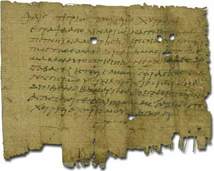 Earlier this week, I was asked to write a response to a contradiction that atheist Kenny Wyland lists as the “craziest biblical contradiction ever.” Scott Burgener mentioned this same contradiction as being the “watershed moment” that led to his rejection of Christianity, and it is also included as number 434 in the Skeptics Annotated Bible “List of Contradictions” as well as in Jim Merritt’s “List of Bible Contradictions” on infidels.org. So what is this contradiction which has attracted the attention of so many atheists? It is the very important question of whether it was God or Satan who tempted David to take a census of the nation of Israel. 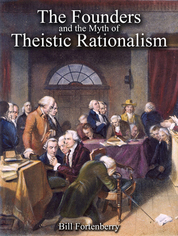 Yesterday, a friend of mine asked me if I had read Gregg Frazer's book on The Religious Beliefs of America's Founders. I told him that I had and that I had written a small book in response to Mr. Frazer's claims, but his question reminded me of just how little most people know about this particular area of my research. Gregg Frazer is a history professor at The Master's College and a member of John MacArthur's Grace Community Church. His book on the founding fathers presents the claim that the most important of America's founders were decidedly not Christians but rather what he calls Theistic Rationalists. In my book, The Founders and the Myth of Theistic Rationalism, I show that Mr. Frazer relied on an improper definition of Christianity in order to exclude the key founders from the community of believers. In addition to my book, however, I have also debated Mr. Frazer's view with several other historians, and most of those debates can be read online. The list below provides links to some of the best of those debates. If you've ever had any doubts about the faith of our founders, let me suggest that you take some time to read through a few of these debates and see if I might be able to change your mind. 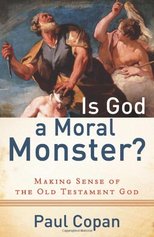 In the first two parts of this rebuttal, I noted that Mr. Copan’s position does not take into account the jumbled chronology of Joshua and Judges. In part three, I would like to draw your attention to the geographical clues in these two books which support the statements that I made in the previous two articles. Mr. Copan’s claim is that Joshua had to be using hyperbole when he spoke of killing all of the people in the land of Canaan. This claim is founded primarily on a single fact. According to Mr. Copan, the very same nations that Joshua claimed to have destroyed are mentioned later as still being in existence, and this can only be explained by concluding that Joshua did not really kill everyone that he said he killed. Thus, Mr. Copan concludes that Joshua was using typical “ancient Near Eastern hyberbole.” I suggested in parts one and two of this rebuttal that the people killed by Joshua had relatives in nearby regions who reclaimed the cities that Israel left vacant during the years following the initial conquest of Canaan. I demonstrated that this fits the chronology of the two battles with the Anakim in Kirjath-Arba. But now, let’s consider whether this suggestion is supported by the geographical portions of the text. Of course, studying geography can often be difficult without a map, so let’s begin by considering a map that I created last night of the land which Joshua conquered. 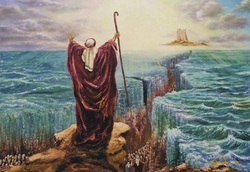 In my previous Bible Contradiction article, I provided a solution to a contradiction that the Skeptics Annotated Bible (SAB) listed as having no Christian response. That’s not to say that I was the first Christian to solve this particular contradiction. They simply hadn’t linked to any response yet in the SAB list. So, after I posted my solution, I sent Steve Wells, the administrator of the SAB page, a tweet informing him of a new Christian response to that contradiction, and Steve was kind enough to add a link to my solution at the bottom of that page on the SAB. 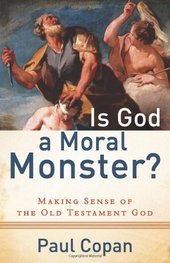 Let me take a moment before continuing this rebuttal of Paul Copan’s solution to the Canaanite problem in order to let you know that I am not condemning Mr. Copan as a person. I think very highly of Mr. Copan. I appreciate his character and the work that he has done for the Lord, and he is much better at one-liners than I could ever hope to be. I simply think that he is mistaken in his approach this particular issue. Having said that, let me continue to address this mistake. As I mentioned in the previous article, Mr. Copan’s error seems to stem from a lack of consideration of the context of his proof texts. In particular, I mentioned the possibility that relatives of the people whom Joshua slew may have reclaimed the cities which Israel had left abandoned. I suggested that Mr. Copan failed to consider this possibility because he neglected to consider the implications of the contextual clues. Now, I am certain that, at this point, some of you are thinking that the hypothetical situation which I mentioned in the previous article was a bit far-fetched, but let’s take a look at what the context tells us about the chronology of the events at the end of Joshua. 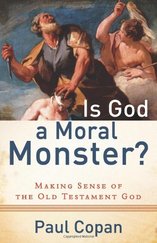 One of the things that really bothers me as a Christian is seeing other Christians attempt to explain away the troubling passages of Scripture. This past Saturday, I had the privilege of hearing Paul Copan speak about his book Is God a Moral Monster. I’ve been very slowly reading through Mr. Copan’s book for some time now, so I was looking forward to the opportunity to hear this particular presentation. My hope was that hearing him in person would alleviate some of the concerns that I had developed while reading his book. Unfortunately, that hope did not come to fruition. One of the greatest concerns that I have for Mr. Copan’s thesis is his apparent lack of consideration for the context of some of his proof texts. A good example of this flaw can be found on page 171 where Mr. Copan uses the accounts of the Anakim to prove his claim that Joshua was using “ancient Near Eastern hyperbole” whenever he spoke of utterly destroying some particular foe. Here is the quote from that section of Mr. Copan’s book which I find to be so troubling: 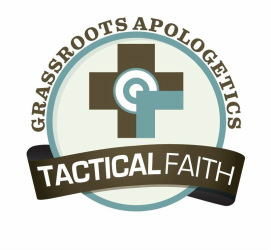 If you want the local church to engage in apologetics, then you have to make it both affordable and accessible. That has been my experience over the past several years. If I tell the average Christian layman that he should attend a particular apologetics conference or purchase a DVD set from one of the various apologetics ministries, I usually get some sort of half-hearted promise that he will "look into it." But if I invite that same Christian layman to a free Saturday conference, then he becomes very interested.  I asked my son last night what I should write about for today’s blog post, and he said that I should write something about the founding fathers, so that’s exactly what I am going to do. One of the most contentious books about the founding fathers of late has been David Barton’s book The Jefferson Lies. In that book, Barton makes many claims that I agree with and a few with which I disagree, but I’m not going to discuss Barton’s book in this article. What I would like to discuss is one of the responses that was given to that book by a particular Christian historian named Gregg Frazer. |
Bill Fortenberry is a Christian philosopher and historian in Birmingham, AL. Bill's work has been cited in several legal journals, and he has appeared as a guest on shows including The Dr. Gina Show, The Michael Hart Show, and Real Science Radio.
Contact Us if you would like to schedule Bill to speak to your church, group, or club. "Give instruction to a wise man, and he will be yet wiser: teach a just man, and he will increase in learning." (Proverbs 9:9)
Search
Topics
All
Archives
June 2024
|


 RSS Feed
RSS Feed